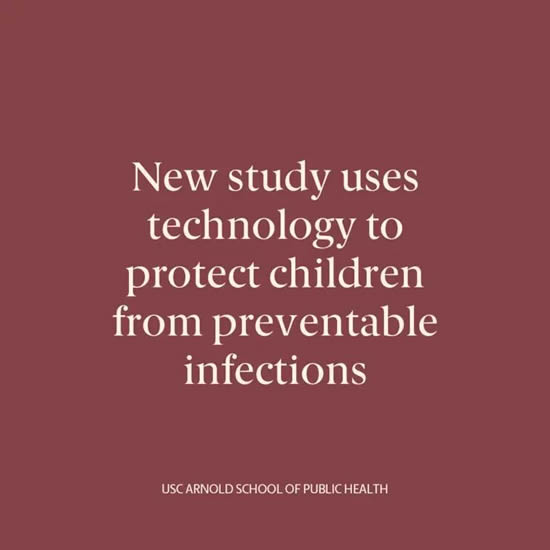NEWS RELEASE
28-AUG-2023
New study uses technology to protect children from preventable infections
ARNOLD SCHOOL OF PUBLIC HEALTH

CAPTION: Health services policy and management associate professor Jan Ostermann will lead the project.
CREDIT: Anna Wippold
Jan Ostermann, associate professor of health services policy and management, is leading a new project to increase vaccination uptake among children in rural and underserved areas. Collaborating with Lavanya Vasudevan (Rollins School of Public Health, Emory University), Nathan Thielman (Duke University), and Ester Ngadaya (National Institute for Medical Research, Tanzania), Ostermann will use a $3 million grant from the Eunice Kennedy Shriver National Institute of Child Health and Human Development to implement a community-based digital intervention in Tanzania that could be applied in settings around the world.
A preventable problem
“Timely vaccinations for children are essential to ensure immunity against preventable and potentially deadly infections,” Ostermann says. “Yet, many children living in rural and resource-limited settings receive delayed or no vaccinations, placing them at risk for dangerous diseases.”
This is particularly the case in low- and middle-income countries, according to previous research. The COVID-19 pandemic has exacerbated these trends globally by limiting opportunities for caregiver education and access to vaccines.
The study will determine whether a community-based digital health intervention can increase the timeliness of routine vaccinations, thereby reducing the time that children remain vulnerable to vaccine-preventable illness. Though this intervention could be tested in a number of underserved settings, the researchers will implement it in Tanzania, where the research team has had long-standing partnerships with health agencies and providers.
“We have chosen to conduct this study in Tanzania, where only 68 percent of children receive all basic recommended vaccines in the first year of life, and there are barriers such as low caregiver knowledge and health system challenges related to service delivery and access,” Ostermann says. “However, our findings may be broadly relevant for identifying digital health strategies that can be implemented by nurses or other non-physician health professionals, to bridge vaccination inequities among rural and underserved populations in the United States and elsewhere.”
Timely technology
This project builds on a prior study (funded by NIH’s Fogarty International Center) by the same team, which used mobile phone-based reminders and financial incentives to mothers to improve vaccination rates and timeliness for their children. That study relied on a custom-built mHealth system called mParis (mobile phone assisted reminder and incentive system) to send automated SMS messages to study participants. The versatile, open source system is currently undergoing a major upgrade for this study and for a parallel study that aims to increase uptake of HIV testing in Tanzania through mobile phone messages and social networks.
Like the HIV testing study, the vaccination project will use low-cost digital strategies (e.g., automated task scheduling, reminders, incentives), but the new system will be integrated with a case management system and backstopped with community health workers who will provide vaccination information to mothers.
By empowering community health workers (i.e., trained health educators and resource facilitators who are trusted members of the communities they serve) to deliver the education component of the intervention, the vaccination study will overcome the digital divide and address some of the challenges that many underserved areas face due to a limited health workforce.
The study will use an implementation science framework to evaluate the intervention, providing rigorous evidence on the effectiveness of a community-based digital health intervention for promoting vaccination coverage and timeliness among Tanzanian children. It will also identify implementation strategies to facilitate the deployment of integrated vaccination interventions in other resource-constrained settings.
Contact:
Erin Bluvas
Arnold School of Public Health
bluvase@sc.edu
Cell: 8433021681
ORIGINAL SOURCE https://www.sc.edu/study/vaccination_uptake_grant_ostermann.php
Source: https://www.eurekalert.org/news-releases/999843
"Reproduced with permission - ARNOLD SCHOOL OF PUBLIC HEALTH "
ARNOLD SCHOOL OF PUBLIC HEALTH
For more HIV and AIDS News visit...
Positively Positive - Living with HIV/AIDS:
HIV/AIDS News
|